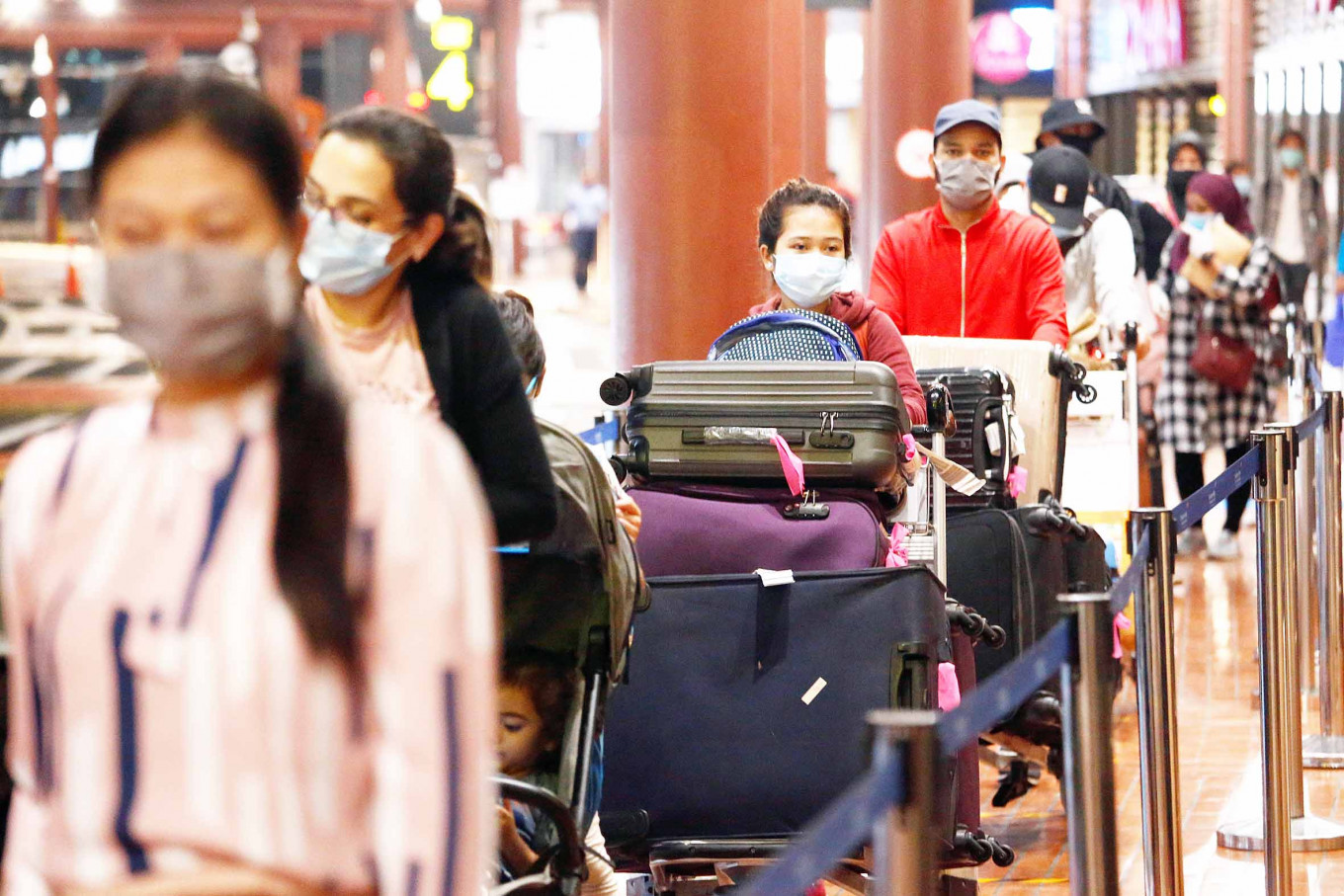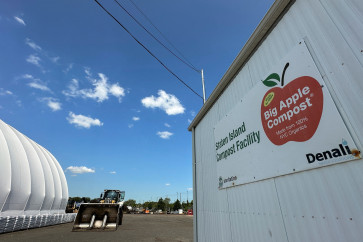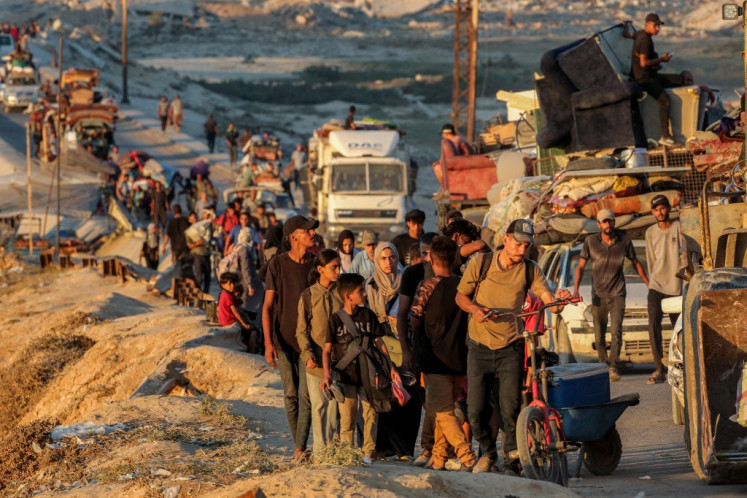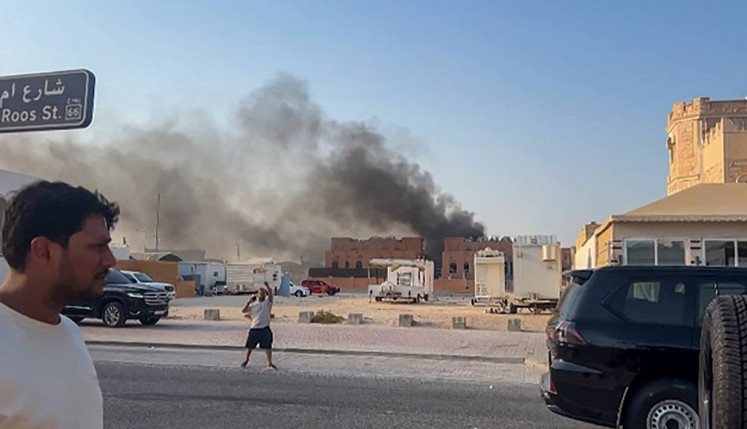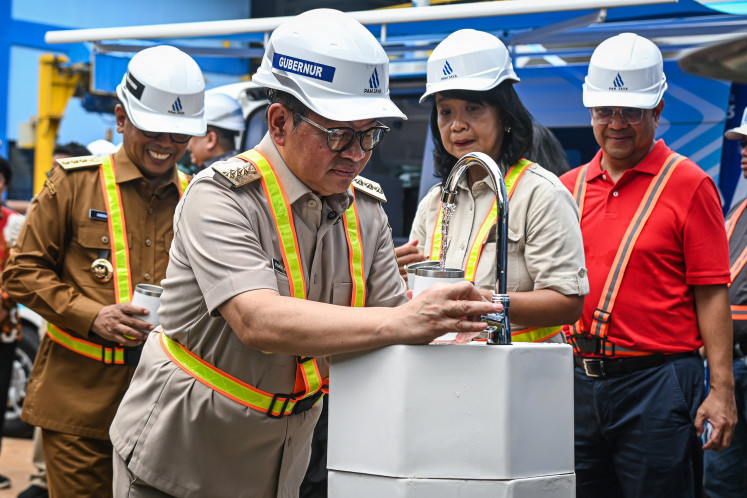Popular Reads
Top Results
Can't find what you're looking for?
View all search resultsPopular Reads
Top Results
Can't find what you're looking for?
View all search resultsCoronavirus-air travel consumer perception means lengthy recovery for airlines: UI study
A University of Indonesia study has presented its projection of a prolonged U-shaped recovery curve at a discussion involving aviation industry experts and stakeholders.
Change text size
Gift Premium Articles
to Anyone
T
he nation's airlines will have to brace for a lengthy recovery period of more than a year, as public perception of air travel has turned negative amid the COVID-19 pandemic, experts warn.
A University of Indonesia (UI) study shows that the Indonesian public is currently avoiding all air travel except for urgent matters, and that people are generally associating air travel with their fear of contracting COVID-19.
UI Innovation and Science Techno Park (DISTP) director Ahmad Gamal said that consumer perception of air travel now ranged from neutral to negative, compared to positive before the pandemic, and could thus exacerbate the impacts of COVID-19 on the commercial aviation industry.
“We can see that air travel, which was originally seen as a quick, practical and prestigious mode of transportation, has become closely associated with the spread of COVID-19,” Ahmad said on Tuesday during a virtual discussion with the Transportation Ministry.
The pandemic has severely affected the global aviation industry, with many countries imposing travel bans.
In Indonesia, the large-scale social restrictions (PSBB) that has been implemented in certain regions to contain the virus' transmission has battered demand for air travel and forced airlines to ground their fleets.
Ahmad said the researchers of the DISTP study projected a U-shaped recovery curve for the aviation industry and more than a year for the industry to return to the pre-pandemic level.
In contrast, a V-shaped curve would indicate rapid recovery.
“We think the most realistic recovery model is a prolonged U-shape, [with] recovery efforts still needed in 2021. It takes time for the industry to regain customer trust and confidence to fly [again],” he said.
Statistics Indonesia (BPS) data shows that passengers on domestic flights fell 81.7 percent month-to-month (mtm) to 840,000 passengers in April.
Meanwhile, international air passengers plunged 95.3 percent mtm to 26,000 passengers, while foreign tourist arrivals fell 66 percent mtm to 160,000 arrivals in April.
The International Civil Aviation Organization (ICAO) estimates that by the end of this year, scheduled international passenger traffic could decline by a maximum 71 percent of seating capacity and by 1.5 billion passengers globally as a result of the pandemic.
The ICAO also estimates a maximum US$314 billion in potential revenue loss this year among the world's airlines.
Ahmad added that the airline industry would need strong government support to recover.
“The industry’s recovery depends on financial support from the government, financial institutions and investors, including tax incentives and bridging funds,” he said.
The government plans to give a working capital guarantee of Rp 8.5 trillion (US$601.6 million) to flag carrier Garuda Indonesia as the airline struggles to manage loss and debt during the pandemic.
Garuda Indonesia president director Irfan Setiaputra said that the findings of the DISTP study aligned with the projections of its analysts.
“According to our analysts' consensus, it will take two to three years for the industry to return to the pre-pandemic level,” he said during Tuesday's discussion.
Irfan said that the rigorous health requirements for all air passengers had deterred people from air travel.
Under the government’s COVID-19 health protocols, individuals must present several documents to be eligible to fly, including their identity card, a letter of health declaring them "coronavirus-free" and an official letter of duty assignment (surat tugas).
“[People are] thinking twice before deciding to fly, because the PCR [polymerase chain reaction] test required of all flight passengers is expensive,” Irfan said.
Additionally, the government has applied a 50 percent cap on total fleet capacity to maintain social distancing between onboard passengers, which has also battered the airline industry.
“As we may not fill our airplanes to capacity, we will also need to raise ticket prices,” Irfan said.

